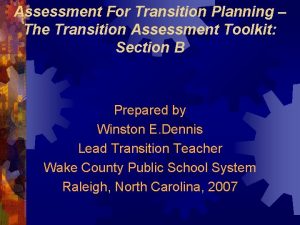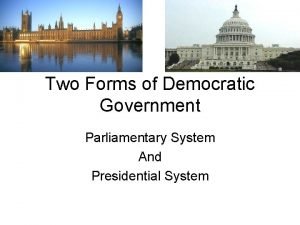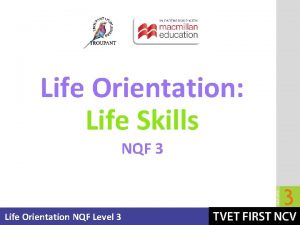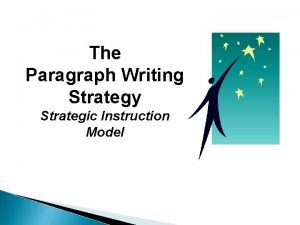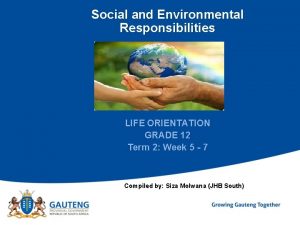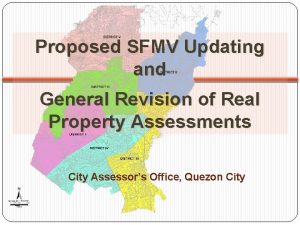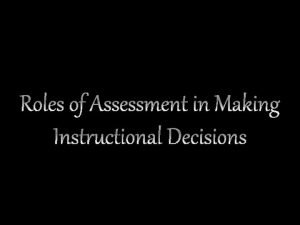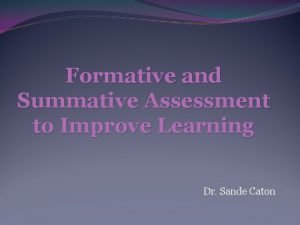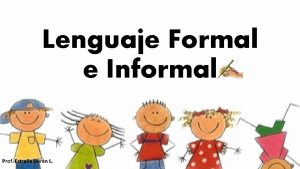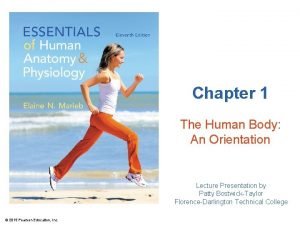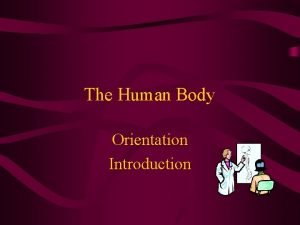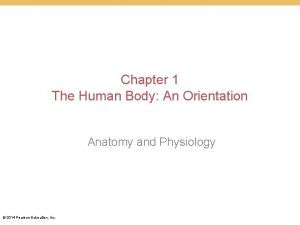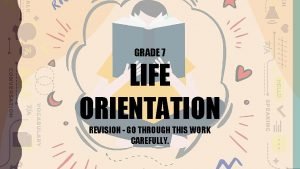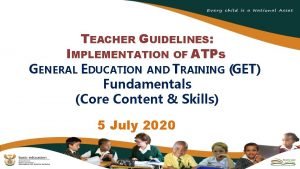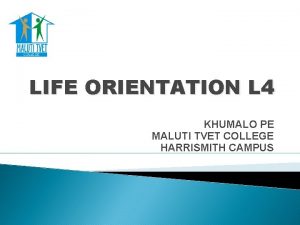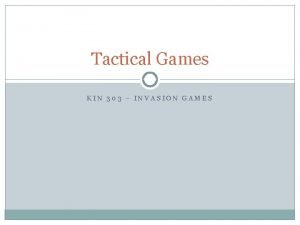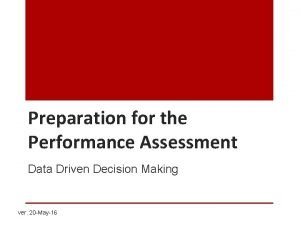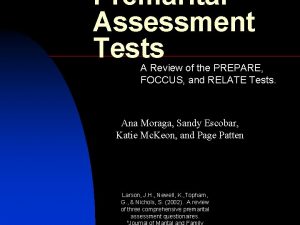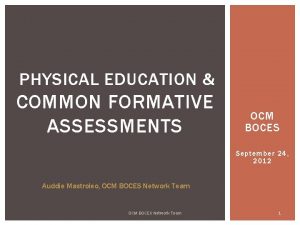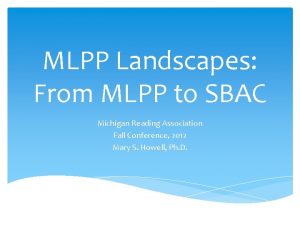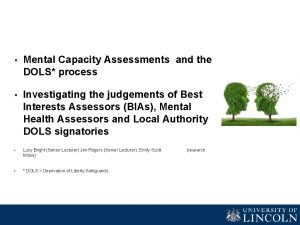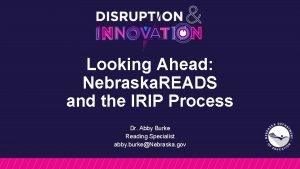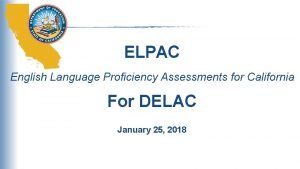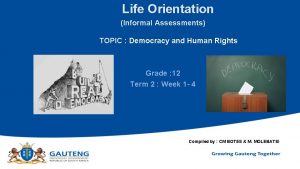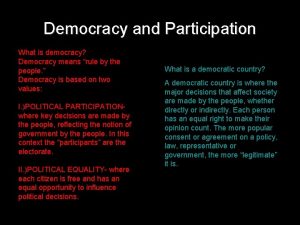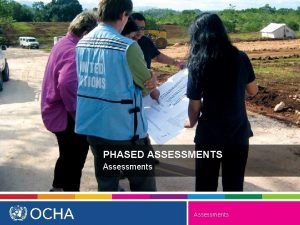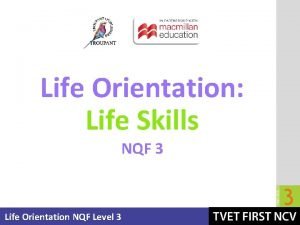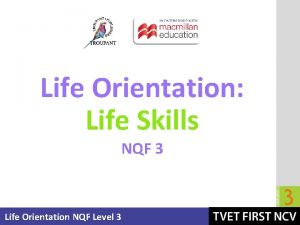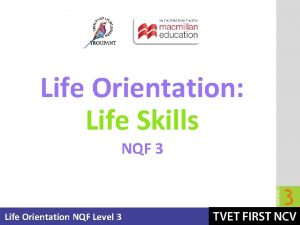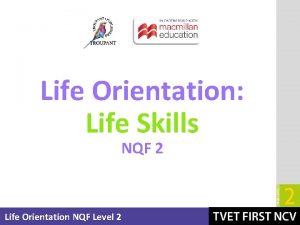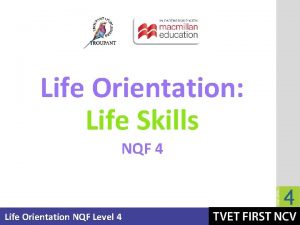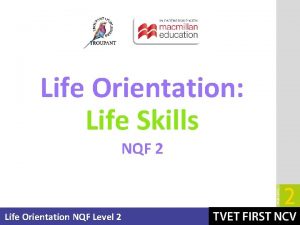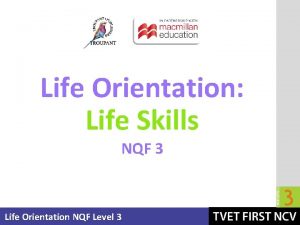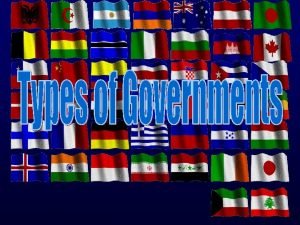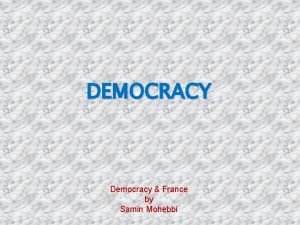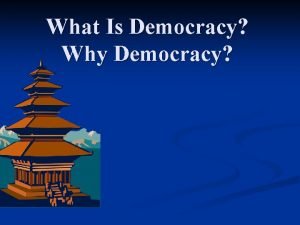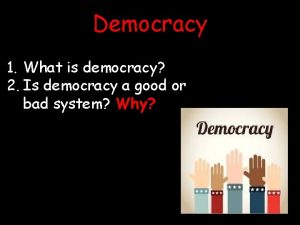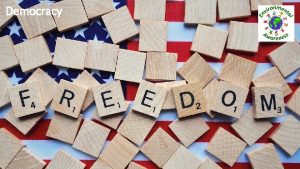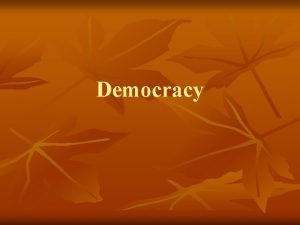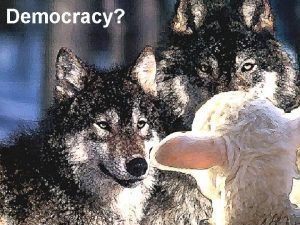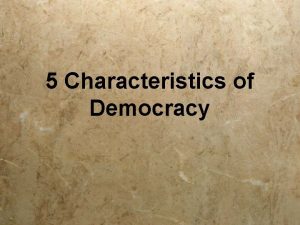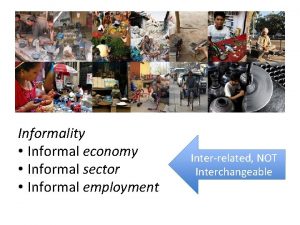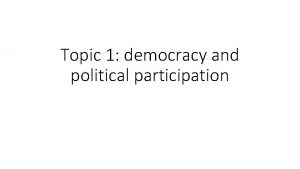Life Orientation Informal Assessments TOPIC Democracy and Human
































- Slides: 32

Life Orientation (Informal Assessments) TOPIC : Democracy and Human Rights Grade : 12 Term 2 : Week 1 - 4 Compiled by : CM BOTES & M. MOLEBATSI

OVERVIEW OF SUB-SECTIONS RESPONSIBLE CITIZENSHIP Evaluating own position when dealing with discrimination and human rights violations Events which address discrimination and human rights violations Campaigns which address human rights violations Projects which address human rights violations Take into account the Bill of Rights

WEEK 1 – Responsible Citizenship • You have learnt about personal responsibility, but you also have a responsibility as a citizen of the country. You need to stay informed so that you can participate and be active in society. So you can promote and respect human rights, take part in events and campaigns that fight against human rights violations. • The South African Constitution contains the Bill of Rights in the second chapter and it explains the rights of the people and affirms that democratic values of human dignity, equality and freedom. • Responsible citizens are familiar with the Bill of Rights and they know their rights, obey the law, vote in elections, pay taxes and respect the rights of others. • Once you know your rights, you can identify violation a of your and someone else’s rights and take action.

WEEK 1 – Responsible Citizenship 1. Explain why it is important to know your rights and responsibilities? 2. What was the first international document to define all people’s human rights? 3. Describe a situation where people’s opinions and the Bill of Rights clash. What should be should in these cases? Use your knowledge of the Bill of Rights and democracy to answer the question. 4. What should be done in such cases? 5. Why do children and the elderly have special rights? 6. Which are often the most vulnerable groups (other than children and the elderly) in society to have their rights violated? Justify your answer.

WEEK 1 – Responsible Citizenship Are you able to evaluate your own position when dealing with discrimination and human rights violations, while taking into account: - the Bill of Rights? participation in discussions? projects? campaigns? events which address discrimination and human rights violations? Before we can participate in the many campaigns, discussions and projects that are targeted at awareness of human rights you have some soul searching to do. Have you personally confronted, examined analysed your own feelings, actions and prejudices? Human rights education aims to do the following: Enhance the knowledge and understanding of human rights. Foster attitudes of tolerance, respect, solidarity, and responsibility. Develop awareness of how human rights can be translated into social and political reality

WEEK 1 – Responsible Citizenship Define and describe human rights education. This is defined as training, distribution and information efforts aimed at building a universal culture of human rights by imparting knowledge and skills, and shaping attitudes. The education is the most important tool for spreading human rights awareness. What rights have you knowingly or unknowingly, violated? Although it is difficult to admit we all have prejudice and bias and engage in some form of discrimination. All human beings, whether they are citizens or not, have rights. For example the rights to be treated equally, have dignity, to have your own opinion, express your ideas, live and work in a healthy environment, be treated fairly at work and have access to healthcare.

WEEK 1 – Responsible Citizenship 1. Why is it important to include human rights education in the school curriculum? 2. What possible prejudices may you have? 3. Identify and explain a situation in which you saw a human rights violation and how did you feel? 3. 1 What did you do? 3. 2 What could you have done? 3. 3 Who could you have asked to help you?

WEEK 1 – Responsible Citizenship 6. Write an essay in which on the evaluation of a human rights violation campaign in which you do the following: • Evaluate whether or not the 16 Days of Activism Campaign or any other similar campaign has helped women and children who have been abused in your community. 4 x 2 (8) • Propose TWO ways in which your community can support this or any other similar campaign. 2 x 2 (4)

WEEK 1 – Responsible Citizenship 7. Read the extract and answer the questions. FILMING AFRICA The responsibility of protecting human rights is mainly the duty of the various levels of government in South African. However many other organisations and NGOs such as Filming Africa, also strive to empower the youth to deal with human rights issues in their communities. The Filming Africa project focuses on the youth who have been subjected to various forms of human rights violations and are unable to deal with these issues. Through this project the youth are encouraged to tell their personal stories about how they were sexually exploited for money, made homeless owing to poverty and deprived of an education. This project aims to use film-making and community theatre as a form or art therapy providing participants with an outlet for self-expression. At the same time these stories create awareness by exposing abuse as well as informing and education communities on how to deal with such violations and where to seek help. This project has become an effective platform for the youth to communicate and participate creatively in human rights issues. Their raw energy, booming songs and powerful performance have made it a popular and effective weapon in the fight against violence, abuse and HIV and Aids in communities.

WEEK 1 – Responsible Citizenship 7. 1 By quoting the Bill of Rights, state THREE human rights that are being violated as reflected in the extract above. 3 x 1 (3) 7. 2 How does this project equip the youth in the community to deal with human rights issues? 3 x 2 (6) 7. 3 Discuss THREE ways in which the youth’s participation in such projects could positively influence their personal values and sense of responsibility towards society. 3 x 2 (5)

WEEK 1 – Responsible Citizenship

WEEK 1 – Responsible Citizenship Be Proudly South African • The campaign encourages South African citizens, residents, and visitors who love South Africa to actively invest in the country and its people. The Proudly South African brand campaign was launched in October 2001 with the goal of encouraging South Africans to buy local. 1. What is the purpose of this campaign? 2. Who can participate in this campaign? 3. If successful, what will the outcomes of the campaign be? 4. Have you supported this campaign? Justify your answer. 5. Why should we support the Proudly South African campaign?

OVERVIEW OF SUB-SECTIONS The role of the media in a democratic society Types of Media Freedom of Coverage of sport, sports personalities and recreation activities Expression & its Limitations Extent to which Critical Analysis of Media and Campaigns media reporting reflects a democratic society

Week 2: The Role of the Media in a Democratic Society Electronic Media Print Media

Week 2: The Role of the Media in a Democratic Society “Media” refers to the various forms of communication in society. The mass media is one of the greatest influencers of society and can have powerful impact. It plays a very important part in shaping and understanding news and information. People have the right to know and the media is the vehicle that conveys information and people get their information in different ways: • Define the term PRINTED MEDIA and use examples to illustrate your answer. • Define the term ELECTRONIC MEDIA and use examples to illustrate your answer.

Week 2: The Role of the Media in a Democratic Society The media is a very important component of a democratic society. The media has specific functions / roles in a democracy. Explain them by completing the following: - Informing the public about … - Issues / events … - Rights and injustices … - Political issues (also referred to the ‘watchdog’ role)… - Acting responsibly by reporting … - Provide a platform for … While doing the above the media also has certain freedoms and limitations – it is important that you know them.

Week 2: The Role of the Media in a Democratic Society Everyone has the right to expression, which includes freedom: • ___________ This right does NOT extend to: • ___________

Week 2: The Role of the Media in a Democratic Society

Week 2: The Role of the Media in a Democratic Society 1. Choose the correct option: One of the main benefits of an independent media in a country is that … A. it is free to conduct propaganda and incite violence B. it can freely criticise the state’s policies and activities. C. it will always report information that is accurate and unbiased. D. editors are paid by the state and all reporting is controlled. (1) 2. How can investigative journalism contribute to a democratic society? (2)

WEEK 3: Evaluation regarding outcomes of campaigns and events

WEEK 3: Evaluation regarding outcomes of campaigns and events

WEEK 3: Evaluation regarding outcomes of campaigns and events • Extent to which media reporting reflects a democratic society: - topics covered. The media normally covers news like politics, sport, crime, business news, world news and celebrity gossip. - positions taken by editors. The media also delivers opinions on issues that is meant to influence public opinion. - space allocated to topics. The media should reflect all sectors of society. However some sectors are not well represented for example women’s point of view may not be taken as seriously. - geographical distribution (accessibility of information to different groups in society). The public should be provided with information that is timely, accessible and accurate. However not everyone has access to print or electronic media due to poverty or where they live.

WEEK 3: Evaluation regarding outcomes of campaigns and events

WEEK 3: Evaluation regarding outcomes of campaigns and events

WEEK 4: Ideologies, beliefs and worldviews on recreation and physical activities cultures and genders Key Statements …. ‘Ideologies , beliefs and world views on recreation and physical activity affect participation in sports ‘ ‘The role of culture and gender participation in sports’ • What do you understand by ideologies ……. ? • What are world views ? • Define culture ? • Gender ?

WEEK 4: Ideologies, beliefs and worldviews on recreation and physical activities cultures and genders

WEEK 4: Ideologies, beliefs and worldviews on recreation and physical activities cultures and genders MEDIA AND SPORTS PERSONALITIES “Sports personalities are ‘big business ‘. Whether through television, newspapers, the internet or radio , there has been a select few who have had their faces and voices remembered forever. ” Adapted from www. corwin. com. Accesssed on 26 March 2014 ______________________________ Write an essay on the role of media in sport in which you do the following: • Discuss TWO roles of media terms of the coverage of sport. (2 x 2) (4) • Critically analyse TWO ways in which the media can influence public opinion of sports personalities in a: o - Positive way (2 x 2) (4) - Negative way (2 x 2) (4)

WEEK 4: Ideologies, beliefs and worldviews on recreation and physical activities cultures and genders Recreation is an essential part of human life, regardless of one’s culture. Engaging young people in recreational activities can be a challenging task , as many of them prefer to spend time indoors rather than actively taking part in healthy outdoor activities. [Adapted from www. tandfonline. com. Accessed 11 January 2018] _____________________________________ Write a paragraph on recreational activities across culture and genders Use the following as a guideline • Define term recreation and state TWO benefits of participating in exercises. 1+2 (3) • Explain THREE ways in which culture could influence participation in recreational activities. 3 x 2 (6) • Recommend TWO ways in which young people could use electronic / social media to promote participation in recreational activities across genders in your answers, also indicate the impact of EACH of these actions 2 x 3 (6) (15)

WEEK 4: Ideologies, beliefs and worldviews on recreation and physical activities cultures and genders Why are people concerned about television ? • • Violence Couch potatoes Values Cultural Standards

WEEK 4: Ideologies, beliefs and worldviews on recreation and physical activities cultures and genders Why are people concerned about the internet? Ø Ø Inequality Hate Sites Paedophiles Plagiarism and quality Activity: Write short sentences in which you show your understanding of the concepts below: a. Hacking b. Trolling c. Spoofing d. Identity theft e. Spamming f. Cyber crime g. Cyber hate

WEEK 4: Ideologies, beliefs and worldviews on recreation and physical activities cultures and genders Choose a media campaign and answer the questions: 1. What methods do the media use to attract your attention? For example do they use big headlines , catchy headlines , shocking pictures, sensational photos or colour ? 2. Is there evidence to show that the information is factual, or it is an opinion? How do you know if its true? 3. Have both sides of the story been told , Have all the people involved been given chance to comment or state their case ? 4. Is it clear from which viewpoint or voice is the news given ? Who is speaking or writing ?

WEEK 4: Ideologies, beliefs and worldviews on recreation and physical activities cultures and genders 5. Is the purpose of the message clear ? 6. Are there particular values or points of view promoted by this message ? 7. Is there hidden agenda in the message ? 8. Could other people interpret the message differently ? 9. Does anyone make money or benefit from the information ? 10. Do other media have anything to say about the company / organisation?
 Campaign with responsibility grade 12
Campaign with responsibility grade 12 Informal and formal assessment
Informal and formal assessment Strengths and weaknesses of formal assessments
Strengths and weaknesses of formal assessments Parlimentary system
Parlimentary system Slidetodoc.com
Slidetodoc.com Example of polycentric approach
Example of polycentric approach Unity and coherence
Unity and coherence Research problem example for students
Research problem example for students Campaign with responsibility project
Campaign with responsibility project General revision of assessments and property classification
General revision of assessments and property classification Characteristic of formative assessment
Characteristic of formative assessment Physical fitness test grade 9
Physical fitness test grade 9 What is formative assessment
What is formative assessment Inculto informal.
Inculto informal. Levels of structural organization in the human body
Levels of structural organization in the human body The human body orientation
The human body orientation Chapter 1 the human body an orientation
Chapter 1 the human body an orientation Chapter 1 the human body an orientation
Chapter 1 the human body an orientation Life orientation grade 8 substance abuse
Life orientation grade 8 substance abuse Accountability definition in life orientation
Accountability definition in life orientation Life orientation grade 7 term 2 notes
Life orientation grade 7 term 2 notes Life orientation grade 7 self image
Life orientation grade 7 self image Types of stressors life orientation
Types of stressors life orientation Kin 303
Kin 303 Performance assessments examples
Performance assessments examples Premarital tests or assessments
Premarital tests or assessments Common formative assessment examples
Common formative assessment examples Scoring rubrics for designing a museum exhibit
Scoring rubrics for designing a museum exhibit Mlpp assessments
Mlpp assessments 6 assessments for dols
6 assessments for dols Irip
Irip Occupational therapy assessments for low vision
Occupational therapy assessments for low vision Elpac score levels
Elpac score levels

